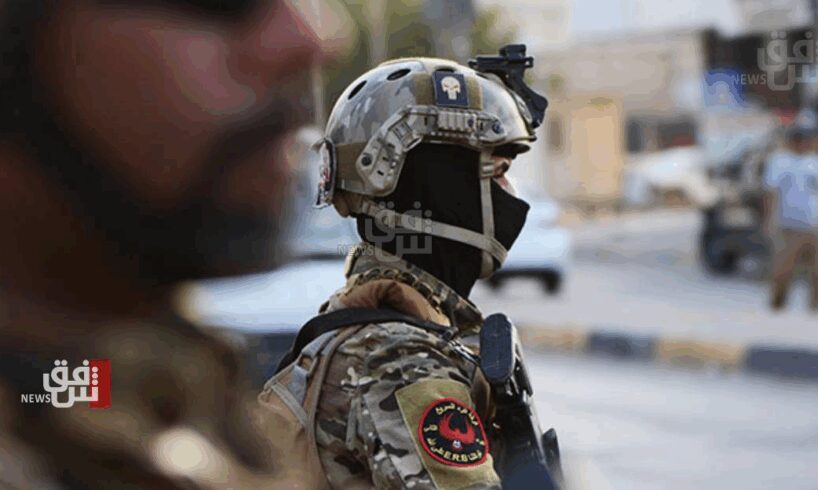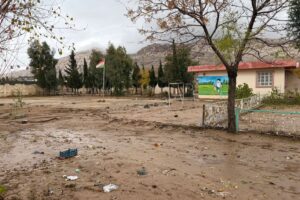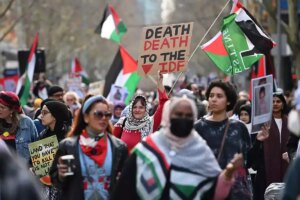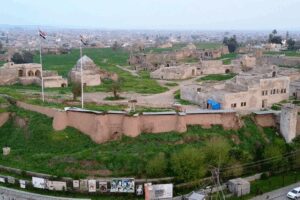
Shafaq News
A young Iraqi man ended his father’s
life with a single bullet to the head—triggered by nothing more than the
father’s refusal to approve his son’s marriage to a girl he had met online. The
shocking incident, which unfolded just last week, encapsulates a disturbing
shift in Iraq’s social landscape: violence has breached the sanctuary of the
home.
What was once unthinkable is now an
unsettling pattern. Killings no longer erupt only among strangers or in public
disputes in Iraq; they now unfold in living rooms, behind closed doors, and
between blood relatives. Sons shoot fathers, parents kill their children, and
homes once defined by love are becoming crime scenes.
From Safe Haven to Battleground
Behind these brutal acts lies a
deeper unraveling of the family’s role as a source of protection and cohesion.
Sociologist Wasan al-Jubouri warns of a “rapid and troubling transformation” in
Iraqi society. Speaking with Shafaq News, she points to an abrupt and
unprepared societal opening that has left families exposed, unmoored, and
increasingly violent.
“The very institution meant to offer
safety and stability,” she explains, “has, in many households, become a theater
for bloodshed.”
Al-Jubouri attributes this crisis to
interwoven factors: spiraling poverty, mounting psychological pressure, high
unemployment, social isolation, and an alarming surge in drug abuse—especially
among youth. She also underscores the retreat of religious and parental
guidance, coupled with the erosion of the educational system’s moral role. “The
result: a moral vacuum where minor disputes spiral into deadly confrontations.”
Poverty and the Geography of
Violence
This trend extends well beyond
isolated incidents. Data obtained by Shafaq News places al-Muthanna, Basra,
Wasit, Dhi Qar, Najaf, and Babil at the center of this violent surge.
Al-Muthanna and Babil, in particular, are among Iraq’s most impoverished regions,
with poverty rates soaring to 40% and 37%, respectively, according to the
Ministry of Planning. These areas also struggle with entrenched unemployment,
mismanagement, and systemic corruption—factors that fan the flames of domestic
breakdown.
The numbers tell a chilling story. A
source in the Ministry of Health confirms that in 2020 alone, 23 children were
murdered by their fathers. An additional 50 individuals—fathers, mothers, and
children—were hospitalized with injuries ranging from fractures to burns. Yet
the Ministry of Interior remains silent, dismissing such crimes as “not new,”
and declining to publish updated statistics.
A Pattern of Horror
But public memory is short, and the
crimes are fresh. In one horrifying case last year, a father shackled his
daughter with iron chains before ending her life. During that same week, three
other family murders ignited public outrage. Unofficial figures reveal that 12%
of Iraqi children have suffered abuse at the hands of their parents—a statistic
that exposes the scale of the crisis.
Social researcher Amal Kabashi links
this violent rupture to a generational clash within the household. In an
interview with our agency, she emphasizes that when families fail to embrace
dialogue, respect, and mutual understanding—especially between spouses, the
cornerstone of stability—domestic life degenerates into a battleground.
“These crimes emerge not in homes
built on consultation and empathy,” she clarifies, “but in those ruled by
coercion, silence, and control.”
She views the rising tide of
parent-child killings as a direct consequence of societal decay. “It defies the
natural order,” Kabashi observes, “because children are the very extension of
their parents’ being.”
Outdated Laws, Inadequate Protection
From the legal front, the response
remains insufficient. Legal Adviser Moayad al-Sabbagh told Shafaq News that
existing statutes cannot adequately address the scope or horror of these
crimes, calling for dedicated legislation to criminalize parricide and filicide
in forms that reflect their unique psychological and societal damage. “We’re
applying outdated laws,” he warned, “to a wave of violence that didn’t exist
when those laws were written.”
He refers specifically to the Iraqi
Penal Code No. 111 of 1969, which, despite amendments, fails to incorporate
Iraq’s post-2003 realities. “Our legal system hasn’t caught up,” he explains.
“We’re seeing wives burn, strangle, or stab their husbands—parents and children
killing each other with terrifying methods—yet the punishments still fall short
of the horror.”
Al-Sabbagh draws a direct line
between these crimes and the twin crises of mental illness and substance abuse,
urging lawmakers to modernize the country’s legal arsenal and reinforce
penalties tied to domestic offenses, drug trafficking, and addiction.
Toward a National Response
Sociologist al-Jubouri warns that
the gravest danger lies in society’s tendency to normalize these incidents as
isolated cases. “Treating these killings as individual episodes,” she cautions,
“is dangerous in itself, because they reflect a deeper societal dysfunction
that will only worsen if ignored.”
To address this, she calls for an
active state role in launching psychological and social support programs,
particularly in overcrowded and vulnerable areas, stressing the need for
sustained public awareness campaigns aimed at prevention.
Rather than relying solely on
security measures, she urges a comprehensive national response—one that
mobilizes educational, religious, and media institutions to restore respect
within the family and foster a healthy, protective environment for all its members.
Written and edited by Shafaq News
staff.





